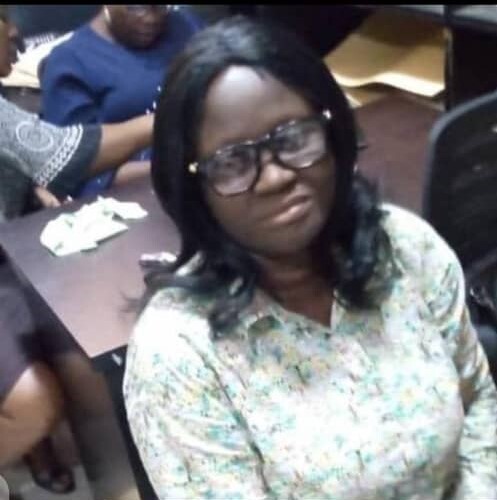Abigail Turkson, women leader, the Association of People With Physical Disabilities, interacted with Equality Reporters on the cluster’s women’s access to reproductive health service in Lagos. Her response reveals the state, which likes to boast of his disability welfare leadership, hasn’t even started at all, broadly speaking
Can you assess the state of accessibility to sexual and reproductive health services which the Lagos government claims it provides it PWD community?
Before we even go to reproductive health, let us talk about the general health services. Yes, we can say we have ramps everywhere. Is it about ramps alone? Why we usually talk about ramps is because our cluster (physical) particularly needs ramps for accessibility. Most government hospitals in Lagos now have them, truly—even though there are no lifts, which are very important. But the private ones are not doing anything. No ramps. They have to carry people in wheelchairs as if they were a bag of rice.
But the impression is the state hospitals are complying with the provisions of the Lagos Special People Law, and Discrimination Act in making general and specific access available?
What gives you that impression? They are not obeying the Discrimination Act at all. I give you an example: I went into one of the government hospitals when I wanted to have my baby. Their doctor right away told me, “No. No. You can’t have your baby here.” You know what that means for a PWD that is pregnant. They didn’t carry out any test or examination. I told her I could deliver my baby. She said no—she didn’t want to take any risk even with a CS. Although I registered there, I never came back. To the glory of God, I delivered my baby at home—without a C.S. Another member in a wheelchair was in the labour room of one government hospital. They started complaining: Somebody in a wheelchair. How would they lift her up to the couch? All the while, the woman was in pain. They made her suffer unnecessarily before they decided. Because of things like this, most of our women prefer to go to the private ones where they have to pay more. Government hospital don’t accept us women with disabilities.
So how do the pregnant ones in your cluster cope with ante-natal care?
They go to private hospitals or trado-medical centres for their ante-natal care—since the government hospitals discriminate against us. Discrimination and embarrassment. I remember when a nurse saw me heavily pregnant in one government hospital. She was like: Oh, my God! Who did this to this woman? Pitying me as if I am not a woman—as if I cannot enjoy being a woman. They consider us inferior. One of our members was at a critical point when they took her to a government hospital. They called me as the cluster’s women leader, and when we got there, the hospital insisted we had to pay first. So I called LASODA. The monitoring director called the hospital. When the staff saw how we started calling here and there, they attended to the lady. You know in Nigeria, if you don’t have connections, you’ll just die.
Aren’t their feedback channels through which you can’ report these violations of the state’s disability law and the Discrimination Act?
I don’t think I want to complain to any authority again. Call LASODA, and see how long it will take them to respond. I don’t even like NGOs. I don’t trust them. I have sent cases to many of them, with video evidence. What did they do? They just make money off our disabilities.
Hasn’t the state health insurance policy for PWD helped the women in any way?
Let’s talk in general health terms, first. A member was sick, and I followed him to the hospital where we were told Lagos has health insurance policy covering the PWDs. The policy never covered medical test when we got there. They insisted we must pay N26,000. We didn’t have it. And that was the end. Yet you must have heard he state shouting their free health insurance policy for PWDs. My own hospital I registered for my health insurance is at Abule Egba. But weeks ago, I slumped at Ikoyi, and they rushed me to the Oluremi Tinubu Health Centre. They refused to attend to me, insisting they would have to refer me. I told them to do it quick because if I died there, they would be in trouble. Accidentally, they saw the LASODA T-shirt I wore underneath that day. That made their doctor attend to me. In about four hours, they billed me N14,000. Imagine if it were another PWD that had happened to?
How is your cluster planning to handle this problem of access to reproductive health in particular?
There is nothing we can do. Our people are afraid to talk. They don’t want to be victimized. Our pregnant women have lost babies because of this discrimination. But the women are afraid to speak out. That should surprise you in this see-something-say-something age. But we will keep talking. Lagos may claim it’s doing a lot. Well, it’s doing something for women with disabilities. But we are far from being there.







